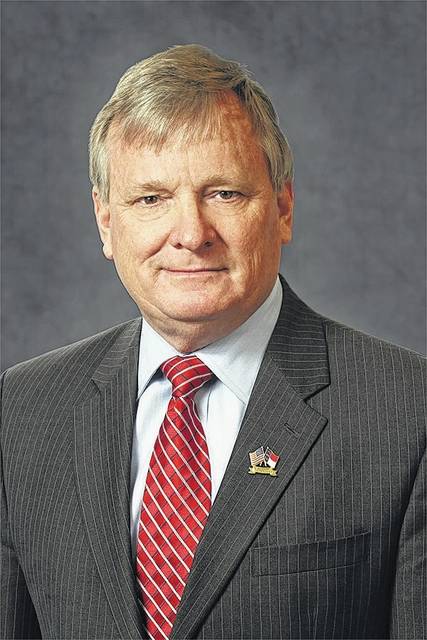Could state employees and retirees make North Carolina a leader in health care price transparency?
State Treasurer Dale Folwell is betting that they can — and he’s looking for a few hundred thousand watchdogs.
Folwell, a certified public accountant elected to the Council of State post in 2016 after serving as a Republican lieutenant governor candidate, state lawmaker and N.C. House speaker pro tempore, thinks it’s time for outside-the-box solutions to skyrocketing health costs.
Noting that many mistakenly thought BlueCross BlueShield administered the state health plan, Folwell redesigned health insurance cards to highlight the fact that the state is self-insured.
“Your state health plan, paid for by you and taxpayers like you,” the cards will now read.
Folwell hopes patients will be more likely to seek the best price from providers and pharmacies and advocate for price transparency reforms when they realize ordinary taxpayers, not a private insurance company, are ultimately footing the bill.
Speaking at the North Carolina Press Association’s annual legislative breakfast in Raleigh last week, Folwell fished a bank card from his wallet.
“None of you in this room pull one of these out of your pocket unless you know the value and the price of what you’re getting,” he said, noting that price factors heavily into many consumers’ gasoline, food and clothing purchases.
Then Folwell held up his health insurance card to illustrate a key difference.
“All of you pull this out of your pocket, which is your health card, and even after you consume [the service], you do not know the value and the price,” he said. “And that’s what we’re going to change. It starts with acknowledging and turning these plan participants 750,000 strong into watchdogs. If I can do that, we’ll be successful.”
North Carolina’s pension plan for retired state workers is more than 90 percent funded and is one of the five most secure state retirement systems in the country. It has an unfunded liability of about $10 billion, due in part to fee hikes charged to the state and increasing life expectancies that translate to more retirees drawing pension checks well into their 80s and 90s.
The state health plan, Folwell notes, is insolvent, with a $35 billion unfunded liability. The money his office will spend on health care in 2018 alone will exceed the General Assembly’s appropriations to the University of North Carolina System and the state Department of Public Safety.
“As keepers of the public purse, we have the responsibility of trying to solve these problems,” Folwell said. “It’s not emotional, it’s not political — it’s mathematical.”
The American health system encourages price inflation and outright overbilling because patients receive care without any concept of cost. They know their co-pays for doctor visits and prescriptions, but the true amount they and their insurer will be asked to fork over comes weeks later in the mail.
Health executives are averse to price transparency because in many cases there is no true price — providers negotiate reimbursements with each individual insurance company. Patients should care when insurers absorb needless markups, because inflated bills ultimately drive up their premiums and raise their deductibles.
“There is no excuse, it’s intolerable, that the biggest purchaser of health care and pharmacy benefits should not be able to do it better and cheaper,” Folwell said.
Advertised prices would allow patients to comparison-shop. If a procedure costs thousands less at Hospital B than Hospital A, and both facilities have comparable quality ratings and reported outcomes, we can vote with our wallets and opt for the care that causes the least financial strain.
The state treasurer doesn’t have the power to require doctor offices, clinics and hospitals to provide estimates or publish price lists. But the General Assembly does, and three quarters of a million state health plan enrollees represent a large constituency with powerful lobbying might.
We applaud Folwell for raising the issue of price transparency, and we call on state lawmakers to enact meaningful reforms that will ultimately reduce the cost of health care for state workers, privately insured patients and the uninsured alike.
— The Wilson Times

